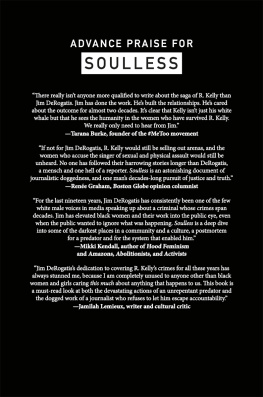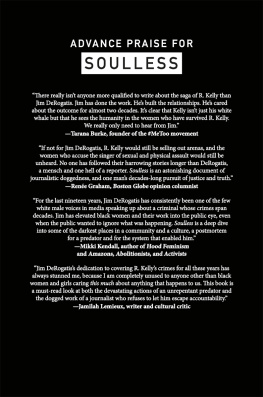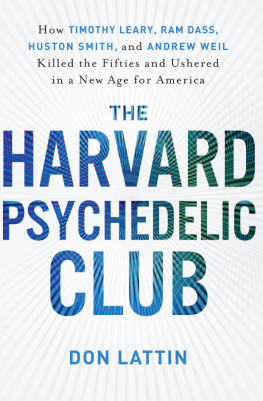Jim Derogatis - Turn on Your Mind: Four Decades of Great Psychedelic Rock
Here you can read online Jim Derogatis - Turn on Your Mind: Four Decades of Great Psychedelic Rock full text of the book (entire story) in english for free. Download pdf and epub, get meaning, cover and reviews about this ebook. year: 2003, publisher: Hal Leonard Corporation, genre: Romance novel. Description of the work, (preface) as well as reviews are available. Best literature library LitArk.com created for fans of good reading and offers a wide selection of genres:
Romance novel
Science fiction
Adventure
Detective
Science
History
Home and family
Prose
Art
Politics
Computer
Non-fiction
Religion
Business
Children
Humor
Choose a favorite category and find really read worthwhile books. Enjoy immersion in the world of imagination, feel the emotions of the characters or learn something new for yourself, make an fascinating discovery.

- Book:Turn on Your Mind: Four Decades of Great Psychedelic Rock
- Author:
- Publisher:Hal Leonard Corporation
- Genre:
- Year:2003
- Rating:5 / 5
- Favourites:Add to favourites
- Your mark:
- 100
- 1
- 2
- 3
- 4
- 5
Turn on Your Mind: Four Decades of Great Psychedelic Rock: summary, description and annotation
We offer to read an annotation, description, summary or preface (depends on what the author of the book "Turn on Your Mind: Four Decades of Great Psychedelic Rock" wrote himself). If you haven't found the necessary information about the book — write in the comments, we will try to find it.
Turn on Your Mind: Four Decades of Great Psychedelic Rock — read online for free the complete book (whole text) full work
Below is the text of the book, divided by pages. System saving the place of the last page read, allows you to conveniently read the book "Turn on Your Mind: Four Decades of Great Psychedelic Rock" online for free, without having to search again every time where you left off. Put a bookmark, and you can go to the page where you finished reading at any time.
Font size:
Interval:
Bookmark:
By Jim DeRogc tis

PRAISE FOR THE FIRST EDITIOf
Kaleidoscope Eyes does for psychedelic music what Jon Savage's England's Dreaming did for punk, and is an essential work in the significant world of rock writing.
-Mid-Wales County Times & Express
In this ambitious and fascinating book, Jim DeRogatis knowledgeably explores every facet of psychedelic rock-not merely the obvious tie-dyed, Day-Glo music that swirled around the Summer of Love, but every type of rock music with a theme of expanding the mind.
-Trudi Miller Rosenblum, Billboard
With all the media schlock about rock and roll in the '60s, a cynical twentysomething like me might think that psychedelic rock belongs to twirling Deadheads and Budweiser-sponsored concerts-music that investment bankers pop in the cassette player in the Volvo on the way to junior's soccer practice. I admit, I'm jaded; I think Jim Morrison was a lousy poet, and I don't "get" anything the Moody Blues sing...Enter Kaleidoscope Eyes, a refreshing and objective account of psychedelic rock over the last four decades.
-Gretchen Federlein, Resonance
Jim DeRogatis's Kaleidoscope Eyes is by no means the definitive book on psychedelic music, but its inclusiveness and flexibility expand the concept far beyond the standard canon of psychedelic masters like the Beatles, 13th Floor Elevators, Pink Floyd, the Grateful Dead, Jimi Hendrix, and Jefferson Airplane. It encompasses a myriad of musicians who also explore altered states of consciousness while coming out of cultural, artistic, political, and social contexts far removed from the youth explosion of the late '60s.
-Carlo McCormick, High Times
In his first book, Kaleidoscope Eyes, rock journalist, rabble-rouser, and Chicago Sun-Times pop music critic Jim DeRogatis persuasively argues that psychedelic music did not die in the '60s. Instead, DeRogatis draws the connection between Ken Kesey's acid tests and My Bloody Valentine's guitar tapestries, the Byrds' "Eight Miles High" and De La Soul's "3 Feet High and Rising," Pink Floyd and Portishead, Amon DOW II and Husker Du.
-Greg Kot, Chicago Tribune
For music fans who want to explore the region where hippies, punks, hiphoppers, and rave kids can sit down and share a spliff together, this is an indispensable guidebook.
-Will Hermes, City Pages
Kaleidoscope Eyes is a scholarly but opinionated chronicle/extended meditation that takes the reader from Dr. Albert Hoffman's discovery of LSD, through the early days of psych (Beatles, Beach Boys, the German krautrock bands) and onward, winding up in the modern era with analyses of pop, hip hop and rave culture, plus a pair of extended looks at contemporary avatars My Bloody Valentine and the Flaming Lips. Many, many bands and their significant recordings are mentioned along the way, from Pink Floyd to Pere Ubu to Plastikman.
-Fred Mills, Magnet
Jim DeRogatis is bound by neither time nor place; he follows psychedelic sound wherever it takes him, as the major or minor element in an array of styles. His concentration in Kaleidoscope Eyes is, as befits a rock critic, soundly on the music; personalities and scenes enter to elucidate musical points. Drug references are mainly confined to the impact of drugs on the creativity of the musicians and the ways in which the music attempts to simulate the psychedelic drug experience.
-Deena Dasein, Illinois Entertainer
mALSO BY Jim DeROGATIS
Let It Blurt: The Life and Times of Lester Bangs, America's Greatest Rock Critic
Milk It! Collected Musings on the Alternative Music Explosion of the '90s
"And wouldn't it be dumb / If all their atrocities were just forgiven / But she won't give that to them / Until they learn how to love."
-The Flaming Lips, "Kim's Watermelon Gun"
THE FIRST VERSION OF THE BOOK you hold in your hands was published in 1996, thirty years after the release of the first psychedelic rock masterpieces (Revolver by the Beatles, Pet Sounds by the Beach Boys, and The Psychedelic Sounds of the 13th Floor Elevators), and twenty-nine years after the much-vaunted but generally overrated Summer of Love. Since it was the only thing imposed upon me by my otherwise benevolent editor, Kevin McDonough, I accepted his title-Kaleidoscope Eyes: Psychedelic Rock from the '60s to the '90s-but I should have fought it. For one thing, it came from the wrong album; in the pages that follow, I posit Sgt. Pepper's Lonely Hearts Club Band as something of a mess and a letdown after the masterful Revolver. For another, it implies a certain self-delusion, as if looking at the world through rose-colored glasses, when the aspects of psychedelia that I want to champion are the crystalline clarity that comes the morning after a psychedelic experience, and those conveyed by the original Greek roots of the word, which mean "soul-revealing" or "mind-manifesting." Hence the return of my original name, with its nod to the Beatles' brilliant and enduring "Tomorrow Never Knows"-Turn on Your Mind: Four Decades of Great Psychedelic Rock.
In addition to nearly six more years of reading, listening, and writing, this edition benefits from the thousand-odd insertions, deletions, amendments, and edits that any writer would love to have the chance to make in order to improve his or her first book. It has been fully revised and updated since the original book pub lished by Citadel Underground in the U.S. and Fourth Estate in the U.K.; includes the insights gleaned from dozens of additional interviews conducted with many of the key players in the story of this fascinating genre, and has been enriched incalculably by the hundreds of conversations and e-mail exchanges, pro and con, that I had with readers of the first book from around the world. (I cannot adequately thank everyone who took the time to share their thoughts with me.) Otherwise, the goals are exactly the same as they were the last time.
The first of these was to provide the sort of sweeping genre overview that psychedelic rock has always deserved but has never gotten. During the punk explosion of the mid-'70s, Lester Bangs drew a new line through rock history that connected the threechord drive and amped-up attitude of "La Bamba" by Ritchie Valens to "Louie Louie" by the Kingsmen, "No Fun" by the Stooges, "Blitzkrieg Bop" by the Ramones, and-we could add today"Smells Like Teen Spirit" by Nirvana. This book is not the definitive history of the genre; I doubt that any one tome ever could be. Instead, it is an attempt to draw a line from the hypnotic drone of the Velvet Underground to the disorienting swirl of My Bloody Valentine; from the artful experiments of Pet Sounds to the flowing, otherworldly samples of rappers P.M. Dawn; from the dementia of the 13th Floor Elevators to the grungy lunacy of the Flaming Lips; from the crazy psychedelic community of Amon Diiiil II to that of the Elephant 6 bands, and from the sounds and sights at Ken Kesey's '60s Acid Tests to those at '90s raves.
Font size:
Interval:
Bookmark:
Similar books «Turn on Your Mind: Four Decades of Great Psychedelic Rock»
Look at similar books to Turn on Your Mind: Four Decades of Great Psychedelic Rock. We have selected literature similar in name and meaning in the hope of providing readers with more options to find new, interesting, not yet read works.
Discussion, reviews of the book Turn on Your Mind: Four Decades of Great Psychedelic Rock and just readers' own opinions. Leave your comments, write what you think about the work, its meaning or the main characters. Specify what exactly you liked and what you didn't like, and why you think so.







